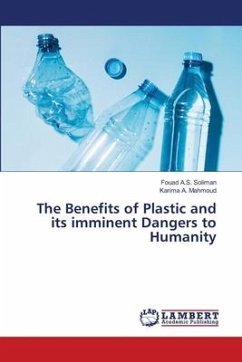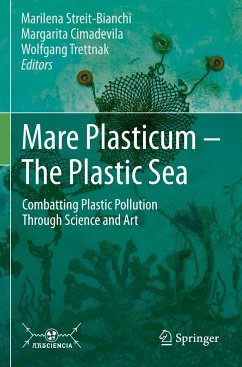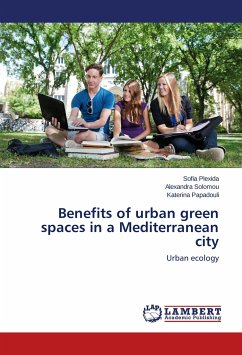
The Benefits of Plastic and its imminent Dangers to Humanity
Versandkostenfrei!
Versandfertig in 6-10 Tagen
45,99 €
inkl. MwSt.

PAYBACK Punkte
23 °P sammeln!
The success and dominance of plastics starting in the early 20th century has caused wide- spread environmental problems, due to their slow decomposition rate in natural ecosystems. Toward the end of the 20th century, the plastics industry promoted recycling in order to ease environmental concerns while continuing to produce virgin plastic and to push the responsibility of plastic pollution onto the consumer. The main companies producing plastics doubted the economic viability of recycling at the time, and the economic viability has never improved. Plastic collection and recycling is largely in...
The success and dominance of plastics starting in the early 20th century has caused wide- spread environmental problems, due to their slow decomposition rate in natural ecosystems. Toward the end of the 20th century, the plastics industry promoted recycling in order to ease environmental concerns while continuing to produce virgin plastic and to push the responsibility of plastic pollution onto the consumer. The main companies producing plastics doubted the economic viability of recycling at the time, and the economic viability has never improved. Plastic collection and recycling is largely ineffective because of failures to solve the contemporary complexities of cleaning and sorting post-consumer plastics for effective reuse. Most plastic produced has not been reused, either being captured in landfills or persisting in the environment as plastic pollution. Plastic pollution can be found in all the world's major water bodies, for example, creating garbage patches in all of the world's oceans and contaminating terrestrial ecosystems. Of all the plastic discarded so far, some 14% has been incinerated and less than 10% has been recycled.












